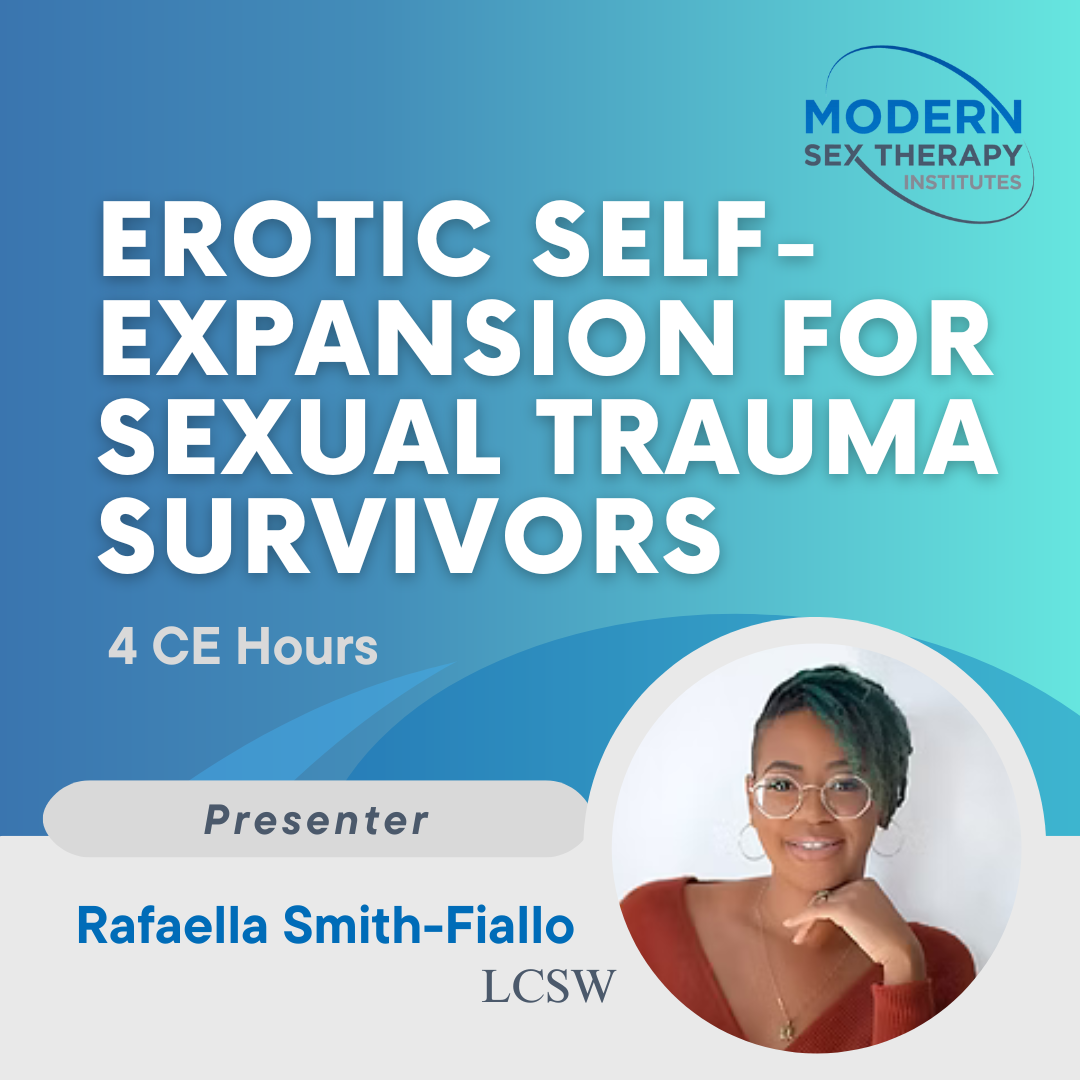Erotic Self-Expansion for Sexual Trauma Survivors
$160.00
4 CE Hours
Presenter: Rafaella Smith-Fiallo, LCSW
Recorded workshop available via video on demand
AASECT Category:
Human Sexuality Education
Section J
AND
Section M
Traditional therapy for sexual trauma survivors leans into cognitive processing interventions adhering to a model of sexual dysfunction and challenging negative self and world narratives. However, trauma is a body and brain experience and including somatic practices is integral to the therapeutic process. Intentionally entering the erotic is also a fundamental step in healing sexual trauma as survivors often report feeling completely disconnected from their desires after a traumatic experience. This workshop will explore methods for increasing sexual embodiment and wellness through the erotic self-expansion model and a sex-positive, pleasure-centered framework.
Learning objectives
● Discuss overlapping physio-somatic sexual and trauma responses.
● Describe the impact that trauma has on the brain and body and how it impacts sexuality and sexual behavior.
● Define and explain 2 benefits of “erotic self-expansion”.
● Describe four (4) somatic, practical, pleasure-centered interventions to help clients explore eroticism.
Activity Schedule:
9:00am-9:15: Introduction to MSTI and presenter and course purpose
9:15-11:00: Review trauma impact and responses
11:00-12:00pm: Review model of erotic self-expansion
12:00-12:45: Introduce somatic and practical interventions
12:45-1:00: Closing comments and Q & A
About the speaker
Rafaella Smith-Fiallo, LCSW (she/her) is a Licensed Clinical Social Worker, sexual liberation activist, and therapist specializing in relationship, sex, and trauma therapy. She owns Healing Exchange LLC, a therapy private practice, and co-founded Afrosexology, a sex-positive, pleasure-based sexuality education business. Her work has been featured in numerous media outlets like HuffPost, Teen Vogue, Vibe Magazine, Broadly, and others. Additionally, she has worked in the field of suicide prevention and crisis intervention in civilian and veteran populations, and in inpatient, outpatient, and community mental health settings.
Class originally recorded: 5/17/2024.
Social workers completing this course receive 4 clinical continuing education credits.

